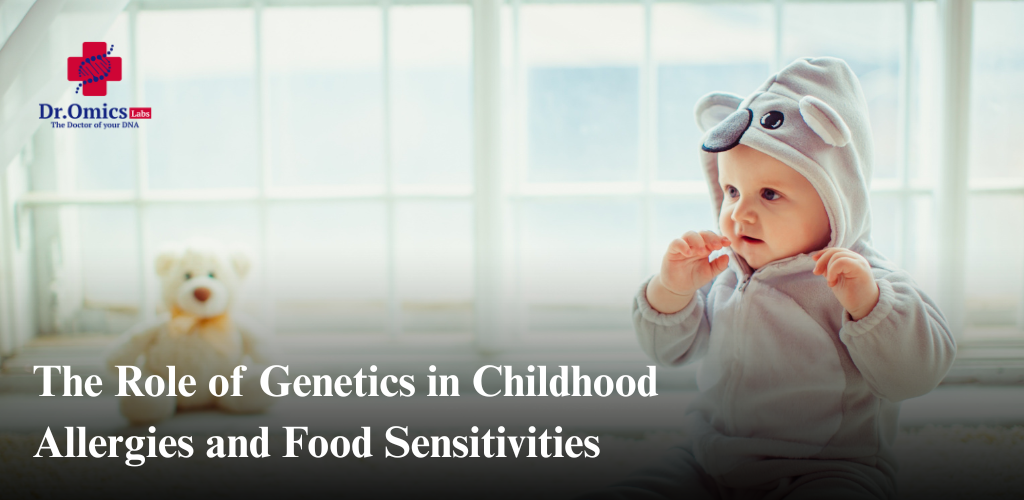Did you know your child’s DNA could reveal why they react to peanuts, dairy, or pollen? Thanks to advances in pediatric genetic testing, we now understand how genetic health for kids plays a major role in allergies and food sensitivities. From newborn genetic screening to early intervention, science is changing how we protect our children’s health.
Why Some Kids Develop Allergies and Others Don’t
While environmental factors matter, research shows that hereditary diseases in children significantly influence allergy risks. Key findings include:
– Children with family histories of allergies are 50-80% more likely to develop them
– Specific genes impact immune responses to foods like milk, eggs, and nuts
– DNA and childhood development are linked with certain genetic variants that make kids more prone to eczema, asthma, or hay fever.
A child DNA test can now identify these risks early, helping parents take preventive steps before symptoms appear.
How Early Genetic Diagnosis Can Change a Child’s Life
Waiting for allergies to “appear” can be dangerous especially with severe reactions like anaphylaxis. Newborn genetic screening and pediatric genetic testing allow for:
Personalised nutrition plans – If a test reveals lactose intolerance or gluten sensitivity genes, parents can adjust diets early.
Targeted allergy prevention – Kids with high-risk markers can avoid triggers before severe reactions occur.
Better immune support – Knowing genetic weaknesses helps doctors recommend probiotics or supplements to strengthen gut health.
For example, a baby with a genetic predisposition to peanut allergies might start controlled exposure therapy under medical supervision reducing risk by up to 80%.
Beyond Allergies: How Genetics Shape Childhood Health
Genetic health for kids isn’t just about allergies. Early genetic diagnosis can also uncover risks for:
🔹 Autoimmune disorders (celiac disease, type 1 diabetes)
🔹 Metabolic conditions (lactose intolerance, fructose malabsorption)
🔹 Skin conditions (eczema, psoriasis)
With this knowledge, parents and doctors can create personalized wellness plans long before problems arise.
Should You Consider Genetic Testing for Your Child?
A child DNA test isn’t necessary for every family, but it’s worth exploring if:
✔ Allergies or autoimmune diseases run in your family
✔ Your child has unexplained rashes, digestive issues, or frequent illnesses
✔ You want to optimize nutrition based on their DNA
Tests like newborn genetic screening (available in some hospitals) or at-home kits can provide valuable insights. Always discuss results with a pediatric genetic specialist.
The Future of DNA-Based Pediatric Care
As science advances, we’ll see:
More accurate allergy predictions from birth
Gene-editing therapies to reduce hereditary disease risks
AI-powered health plans tailored to a child’s DNA
This isn’t science fiction, it’s the next era of DNA and childhood development.
Final Thought
Understanding your child’s genetic risks empowers you to make smarter health choices. Whether through early genetic diagnosis or proactive lifestyle changes, genetic health for kids is revolutionizing pediatric care.




